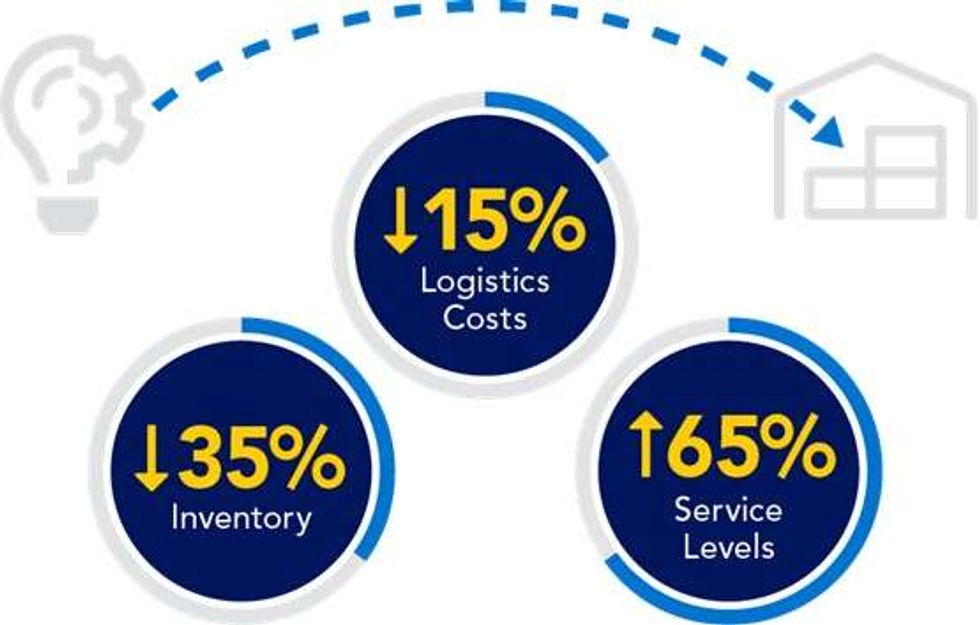Transportation networks face increasing pressure from shifting global trade patterns, unpredictable freight markets and accelerated technological changes. Flexibility has become critical, and third-party logistics (3PLs) providers are enabling shippers to adapt quickly to changing needs.
“Businesses increasingly see their networks as drivers of agility, scalability and innovation — and, ultimately, as enablers of competitive advantage, customer satisfaction and long-term success,” according to The 2025 State of Logistics Report®.
In the report, Jeff Sexstone, Kearney partner for strategic operations, noted that as global uncertainty persists, companies are reimagining their supply chains as strategic platforms for competitive advantage and growth rather than cost centers. “The real challenge today is balancing cost-efficiency with the flexibility and responsiveness needed to manage constant disruption — whether it’s geopolitical shocks, natural disasters or demand volatility,” he said.
Logistics providers build supply chain flexibility through strategic network design, real-time visibility platforms, diverse transportation options (including multimodal capabilities and dedicated capacity), scalable fulfillment operations and value-added services.
The Rising Complexity of Transportation Networks
The 2026 Annual Third-Party Logistics Study reports that as supply chains become more complex and dynamic, shippers and their logistics partners are seeking strategic partnerships that drive long-term value while fostering innovation and improving resilience. Shippers taking part in the study said supply chain disruptions, cost optimization and digital transformation are the top three reasons they are seeking deeper ties with 3PLs.
Shippers continue to face critical operational challenges that hinder their ability to build flexible, responsive supply chains:
Ongoing volatility and disruptions: Geopolitical tensions, tariff fluctuations and trade policy uncertainty continue to make global freight flows unpredictable.
Sourcing challenges: Disruptions from suppliers, especially for critical components, can delay manufacturing operations and customer deliveries. Many shippers are responding by diversifying supply bases and exploring nearshoring strategies to shorten supply chains.
Rising costs: As cost pressures increase, removing waste from supply chains becomes more important. Network optimization identifies the most efficient routes, modes, facility locations and freight movements to reduce transportation and handling costs while improving service levels.
Increased need for resilience: Network engineers can model “what-if” scenarios, such as port closures, demand spikes, carrier issues or weather disruptions. Identifying risks and creating contingency plans allow shippers to plan for disruptions and build resiliency in the supply chain.
Lack of real-time visibility: Fragmented data and disconnected systems prevent shippers from achieving end-to-end supply chain visibility, reducing their ability to make timely decisions and respond to disruptions.
Demand variability: More SKUs, omnichannel fulfillment models, different customer segments and shorter delivery windows increase planning and execution complexity.
Labor challenges: Shippers face difficulties recruiting and retaining qualified drivers, technicians and warehouse workers, creating staffing issues that disrupt operations.
How Penske Logistics Strengthens Flexible Transportation Networks
Penske brings together technology, engineering expertise, operational infrastructure and scalable capacity that helps companies build a flexible transportation network.
Integrated transportation management: Penske delivers end-to-end transportation management, from load planning and execution to performance monitoring and continuous improvement. This integration ensures operators can flex as needed.
Engineering expertise and network optimization: Penske’s engineering teams use modeling, scenario planning and data analytics to help shippers redesign or rebalance their networks. Engineers evaluate routing, facility placement, delivery demands and freight levels, mode mix, labor needs and other factors to identify opportunities to reduce cost, improve service and increase resilience.
Dedicated contract carriage (DCC) transportation: Our DCC service offers guaranteed capacity and the benefits of a private fleet without the burden of ownership.
Access to supplemental capacity and brokerage: Shippers often face sudden capacity issues during demand surges, disruptions or rapid growth periods. Penske addresses these challenges by supplementing its internal fleet with a vetted network of third-party carriers. Brokerage services provide shippers with access to additional modes and lanes for quick response to unexpected demand.
Scalable warehousing and fulfillment: Inventory needs can shift with seasonality, demand fluctuations and market expansion. Shippers need warehousing solutions that can be scaled appropriately. Penske provides flexible capacity and value-added services, such as kitting and sequencing, that adapt to these changing needs.
End-to-end visibility and AI-supported decision making: Penske’s ClearChain® technology suite provides real-time visibility across the supply chain by integrating data from carriers, suppliers and key stakeholders. Penske also offers AI- and machine-learning capabilities to give shippers predictive insights and prescriptive recommendations that improve planning, routing and exception management.
Logistics services are one piece of a flexible transportation strategy. Penske also offers leased trucks and trailers, used trucks and rental vehicles that can complement your logistics strategy and provide capital-efficient, scalable asset capacity.
Contact us to learn more about how Penske can help strengthen and add flexibility to your transportation network.

